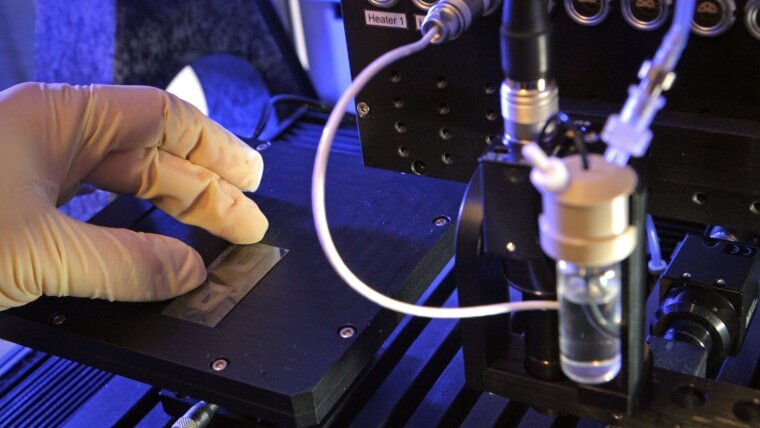Biophotonics
Spectral-optical Analytics, Biomedical Imaging, Chip-based Analytics and Diagnostics.

ACP's Biophotonics scientists develop and apply practical optical solutions for the life sciences, the environmental sciences and medicine. Thus, ACP addresses fundamental biomedical research questions (e.g. cellular processes or marker screening) and focuses on medical diagnosis and therapy (e.g. in pathology, oncology and sepsis research). Scientists aim to develop broadband applicable optical instruments in order to gain a deeper insight into complex, various-sized biological organ samples which include tissue sections, cells, viruses and DNA/RNA.